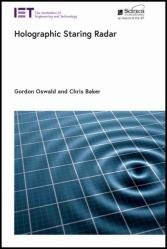Holographic Staring Radar
- Добавил: literator
- Дата: 18-12-2021, 20:27
- Комментариев: 0
 Название: Holographic Staring Radar
Название: Holographic Staring RadarАвтор: Gordon Oswald, Chris Baker
Издательство: The Institution of Engineering and Technology
Год: 2022
Страниц: 351
Язык: английский
Формат: pdf (true)
Размер: 17.4 MB
The development of radar has been one of the most successful direct applications of physics ever attempted, and then implemented and applied at large scale. Radar continues to provide the key surveillance component for both air defence and air traffic control. As we drive past them, rotating radar antennas at airfields and the Pyramid at Fylingdales are familiar sights as they search their airspace.
Certain watchwords of radar engineering have underpinned many of the developments of the past 80 years and remain potential avenues for improvement. For example, 'Narrow beams are good', 'Fast detection is good', 'Agility is good', and 'Clutter is bad'.
All these statements of merit are true. The underlying principles for all these statements are the laws of physics, and they provide support for current radar designs. However, each of these statements is really a design choice, rather than their necessary consequence. This book shows that under the physical laws and with modern data processing, staring radar offers a new direction of travel. The process of detection and tracking can be updated through persistent signal discovery and target analysis, without losses in sensitivity, and while delivering detailed information on target dynamics and classification.
Narrow beams and short dwell times still leave open the question of whether the information obtained by radar in this way is the whole available picture. We start with the target; a unique, pervasive and continuing sequence of encoded scatters must contain more precise, relevant information about the target and its motion, only provided that the target is irradiated and the scatter can be decoded. The relevant laws do not limit solutions of Maxwell’s equations to calculating the presence and position of an object. Its continuing motion, its shape, its orientation and even its materials create the signals; specifically, the sequence of complex field amplitudes scattered and received in any direction in the course of observation.
The first part of the book introduces various forms of staring radar, which include the earliest and simplest forms of electromagnetic surveillance and its users. The next step is to summarise the physical laws under which all radar operates, and the requirements that these systems need or will need to meet to fulfil a range of applications. We are then able to be specific about the technology needed to implement staring radar.
Скачать Holographic Staring Radar
[related-news] [/related-news]
Внимание
Уважаемый посетитель, Вы зашли на сайт как незарегистрированный пользователь.
Мы рекомендуем Вам зарегистрироваться либо войти на сайт под своим именем.
Уважаемый посетитель, Вы зашли на сайт как незарегистрированный пользователь.
Мы рекомендуем Вам зарегистрироваться либо войти на сайт под своим именем.
